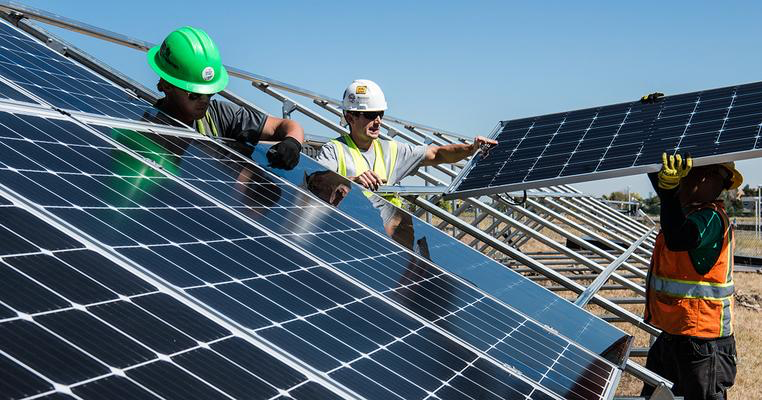East African nations are intensifying their focus on solar energy investments, marking a significant shift towards renewable resources in Rwanda, Tanzania, and Uganda. This strategic pivot, underscored at the 16th Sectoral Council of Energy meeting in Tanzania, highlights the region’s commitment to harnessing solar power to address rural electrification challenges and foster sustainable economic development.
According to a report by ESI Africa, Rwanda leads with a notable on-grid solar energy capacity, drawing power from three major plants and aiming to expand its solar infrastructure to leverage abundant renewable sources. Tanzania’s investment climate is attracting significant attention, with a series of ambitious projects underway, including a pioneering 50 MW solar power plant. The country’s president, Samia Suluhu Hassan, recently advocated for Norwegian investment in renewable energy, among other sectors, showcasing Tanzania’s dedication to green energy development.
Uganda’s Electricity Access Scale-up Project, backed by a $638 million World Bank initiative, aims to connect over 1.3 million rural households to the national grid, underscoring the vital role of renewable energy in expanding access to electricity across the region. The East African Community (EAC) Partner States are collectively investing in renewable infrastructure, from solar mini-grids in Burundi to wind and solar projects in Kenya, signaling a region-wide push towards clean energy sources.
The ministers’ session also reviewed progress in the fossil fuel sector, acknowledging ongoing projects in oil and natural gas exploration and development across Kenya, Tanzania, Uganda, and Rwanda. Despite the focus on renewables, the region recognizes the current role of fossil fuels in its energy mix and is seeking balanced development across energy sources.
Challenges such as vandalism of electricity infrastructure and the need for efficient energy consumption were addressed, with the Partner States committing to combat these issues through various mitigation measures. The session highlighted the critical importance of reliable, safe, and cost-effective energy in achieving the region’s industrial development and investment promotion goals.
The forthcoming launch of Tanzania’s Julius Nyerere Hydropower Plant, capable of generating 2,115MW, represents a significant milestone for not only Tanzania but the entire East African region, promising to alleviate electricity deficits and support sustainable development.
As East Africa navigates its energy transition, the emphasis on renewable resources, particularly solar energy, stands as a testament to the region’s proactive approach to addressing its developmental needs while prioritizing environmental sustainability and energy security.



